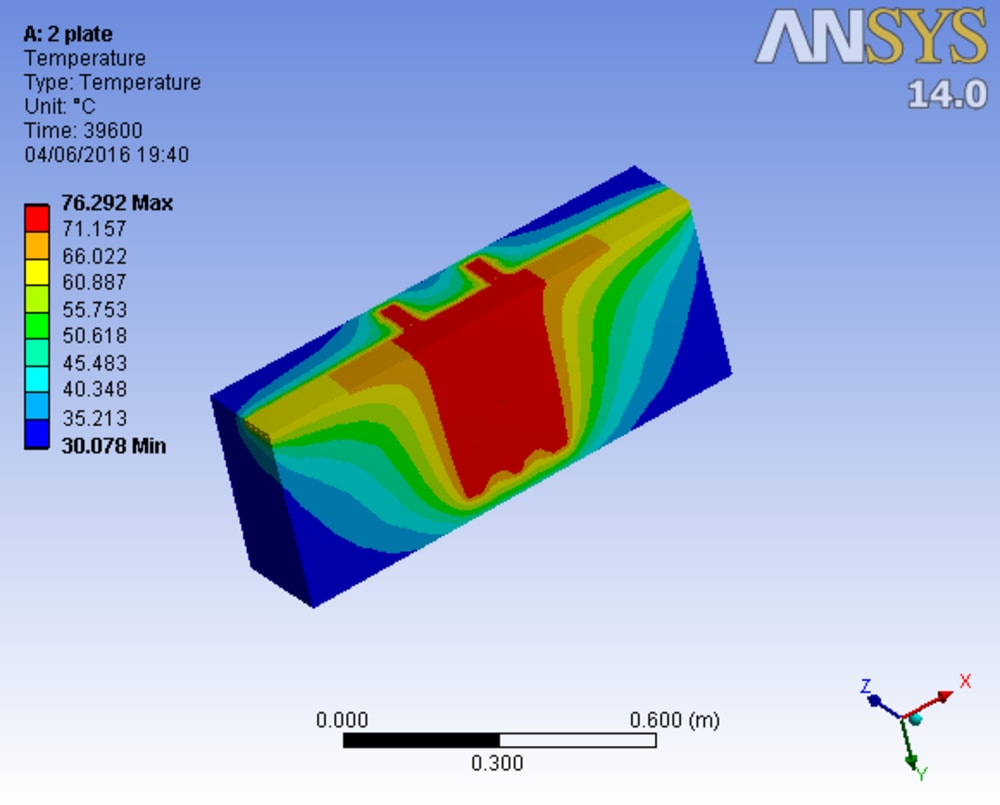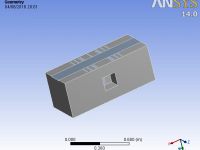This entry is all about solving a common problem of Indian households where it takes long hours to search for fuel for cooking. To help we have proposed a prototype of a cooker which can work via solar energy even at night. The complete process is simulated to check the result and validate before making the final prototype.
Finite element analysis was used to simulate the performance of thermal energy storage in a solar cooker which was fabricated by our team. This cooker stores solar energy in materials like sand for future use. It is inexpensive to construct and can be widely used in villages and urban areas. The cooker energy storage unit consists of a cubical solid block which contains sand as a solar-energy storage unit, along with conducting aluminum sheets for uniform heat distribution throughout the block. The block is enclosed in a uniform layer of insulation, except the cavities on the top surface to allow heating of the sand and as well as near the cooking pot. This heated sand can be used at night to heat a cooking pot which is centrally located in the storage box. A paraboloidal concentrator focuses solar radiation through a secondary reflector onto the central zone of the storage block through the cavity in the insulation. The storage is charged for a set period of time and heat is subsequently discharged to a pot during the night time. The effects on cooker performance are compared for various numbers of plates in the storage block. The temperature attained at various stages is studied for various models. This can be used to cook food in a slow manner and can be kept heated until night.
Different models of thermal energy storage systems and thermal energy utilization are used to perform charging and discharging simulations in solar cooker. The models of thermal energy storage systems are validated with computational results. The results show a greater decrease in temperature value after charging due to uniform distribution as the number of plates is increased but up to a certain number of plates only, then the highest temperature after discharging also decreases.
By further improving the model we can get a product which can help solve the problem in a unique and innovative way. It will reduce pollution and help in making the planet green.
Video
Like this entry?
-
About the Entrant
- Name:Vikas Chourasia
- Type of entry:individual
- Software used for this entry:Ansys
- Patent status:none








